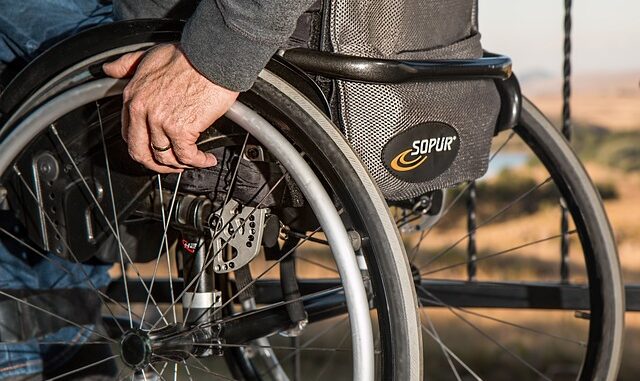
Summary
The NHS is implementing a new AI tool developed by Cera, which predicts patient fall risk with 97% accuracy. This technology monitors vital signs, alerting healthcare staff to potential deterioration and enabling preventative intervention. It’s part of a broader NHS strategy to leverage AI for improved patient care and resource optimization.
Start with a free consultation to discover how TrueNAS can transform your healthcare data management.
** Main Story**
Okay, so the NHS is really stepping up its game with AI, particularly when it comes to preventing falls. Cera, a health tech company, has developed this pretty impressive AI-powered tool, and it’s being rolled out nationwide to predict falls with, apparently, remarkable accuracy. It’s a big deal, and honestly? About time. We need to be embracing tech that can genuinely improve patient outcomes and free up resources.
How Does This AI Actually Work?
Basically, the tool integrates into the existing home care setup. Carers, family, even the NHS staff can use a user-friendly app to input vital signs – blood pressure, heart rate, temperature, the works. Then, the AI does its thing, analyzing all that data to spot any subtle patterns that might point to someone being at a higher risk of falling. And if it detects something, it sends out alerts. Think of it as an early warning system, allowing healthcare teams to put preventative measures in place. A well thought out preventative solution such as this can help keep folks out of the hospital.
Real Impact and Tangible Benefits
They’re already using it in over two million home care visits each month, which is quite a scale, isn’t it? The NHS reckons this tech could prevent around 2,000 falls every day. That’s huge. And it’s not just about preventing injuries, though that’s obviously paramount. It also translates to some serious cost savings, they’re estimating around £1 million daily, because of fewer emergency visits and shorter hospital stays. Let’s be honest, we can spend that money more wisely in other areas.
I think we can all agree that falls are a major issue, especially for older adults, and the associated injuries can really impact their independence and overall quality of life. So, if this AI can help people stay safe and maintain their independence for longer, that’s a win-win.
More Than Just Falls: Expanding Capabilities
But, here’s the kicker: Cera’s AI isn’t just limited to fall prevention. The NHS is planning to expand its capabilities to include early detection of winter illnesses – think COVID-19, flu, RSV, even norovirus. Now, that’s smart. Catching these illnesses early means healthcare providers can intervene sooner, potentially preventing serious complications and reducing the strain on hospitals during those peak winter months. It aligns perfectly with that shift towards preventative care that everyone keeps talking about. Proactive, not reactive, that’s the goal.
AI: The Future of Healthcare?
It’s pretty clear that the rollout of Cera’s AI tool is a significant milestone for AI in the NHS. This is exactly the kind of technology that can transform healthcare, making it more personalized, proactive, and data-driven. Now I may be being cynical here, but its got to be better than a stressed doctor looking at someone for 5 minutes and deciding on a course of action, surely?
As the NHS continues to explore the potential of AI, I think we’ll see more and more innovations like this emerge, further enhancing patient care and completely revolutionizing how healthcare services are delivered. The AI also helps healthcare professionals by automating tasks like scheduling and care plan creation; something that is extremely time consuming for most carers.
What do you think? Could this be the start of a real AI revolution in healthcare? It certainly seems to be heading that way, and I, for one, am excited to see what comes next. Just a misplaced comma. How about that!


The expansion of Cera’s AI to detect winter illnesses is a crucial next step. Early detection could significantly reduce hospital strain during peak seasons. I wonder how the AI will handle the complexities of differing symptoms and patient profiles to maintain its high accuracy.
That’s a great point about the complexities of differing symptoms. The AI’s algorithms will need to be incredibly robust to maintain accuracy across diverse patient profiles. I think continuous monitoring and feedback will be essential for refining its performance and ensuring equitable healthcare outcomes. What are your thoughts?
Editor: MedTechNews.Uk
Thank you to our Sponsor Esdebe
97% accuracy, huh? Remind me, how often do *humans* accurately predict falls? And what happens when the AI is wrong? Does someone get extra supervision, or does the system just shrug and say, “Oops, my bad”?
That’s a great question! The 97% accuracy is certainly impressive, and as you rightly point out, no system is perfect. The system is designed to flag potential risks, so additional supervision can be put in place. It’s meant to be a tool to aid healthcare professionals, not replace them, ensuring a safety net is in place. This way preventative measures can be put in place to reduce the risk.
Editor: MedTechNews.Uk
Thank you to our Sponsor Esdebe